While modern agriculture has given us a lot in terms of food productivity and high yield, it has created its own set of problems, one of which is crop stubble. With the growing use of machines for paddy harvest and other crops, a heavy trail of crop residue is left behind in the field.
India is one of the world’s leading agricultural economies, producing major crops like rice, wheat, pulses, grains, etc.
Due to various factors, Indian farmers to get rid of their crop residue simply put them on fire, leading to extreme levels of air pollution, this is more prominent in the Delhi region and many parts of North India.
A common public perception is that farmers don’t understand the gravity of their actions. However, in our conversation with Arpit Dhupar, co-founder of Dharaksha Ecosolution, who spent a considerable period in Punjab and Haryana villages to understand the problem, has a different take, “villagers understand the ill effects of burning much more than people in the city. As they stay much closer to the fields, the smoke hits them first before it reaches the cities. They also know that this is not just the smoke, the chemicals that they have put in the crops, make the smoke highly toxic and hazardous. They also understand that it would destroy the organic content and friendly pests in the soil“. He gave detailed reasoning for the crop stubble burning problem, you can read it here.
While many solutions have been tried to stop the burning including penalties and financial assistance, however, farmers continue to burn their agricultural waste, resulting in deaths, health issues, and major economic losses.
India needs solutions that leverage this agricultural waste to build a distinct product that creates new economic opportunities which further incentivizes farmers to stop this stubble-burning practice.
Answering the call, a growing number of Indian startups are providing crop stubble-burning solutions, their innovative products are not only preventing the air pollution problem but are also addressing other environmental issues and most importantly boosting farmers’ incomes.
GreenJams, started by civil engineer Tarun Jami, creates carbon-negative building materials from crop residues such as paddy straw, cotton stalks, and bagasse. Along with the problem of crop stubble burning, the Vishakapatnam-based company building material also helps in sustainable construction.
As per the company claims, their product Agrocrete helps reduce the cost of construction by up to 50% and improves the building energy efficiency by up to 25%.
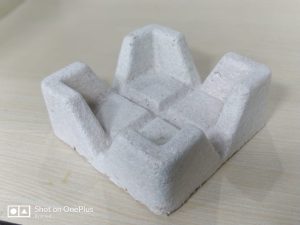
Delhi-based Dharaksha Ecosolution is a sustainable packaging company that makes biodegradable materials from agricultural waste, that can effectively replace Thermocol.
In addition to the crop stubble burning solution, the Dharaksha solution addresses one of the big culprits of plastic pollution that is widely used for packaging – Thermocol (also called expanded polystyrene).
In our conversation with the co-founder of Dharkasha, Arpit Dhupar asserts that the packaging made from crop stubble is durable, strong, cost-effective, and most importantly biodegradable.
Takachar is a Delhi-based company that has developed a machine that converts agricultural waste biomass into marketable products. The machines help farmers augment their income by turning their agricultural waste into products like fuel and fertilizer.
In addition to the Indian market, the company has expanded its offering to Africa as well. In October 2021, Takachar won the inaugural Earth Shot Prize, an award set up by Prince William and the Royal Foundation to celebrate initiatives that relate to the environmental impact of climate change.
Verve Renewables is a Mumbai-based bioenergy company that focuses on providing an end-to-end biomass solution from farms to boilers. Verve has established a mechanism for timely procurement of agro-waste, ensuring farmers do not indulge in the burning of biowaste. The bio-waste is then processed (briquettes and pellets) to make them boiler-ready.
Started in 2018 by Punjab-born founder Suvrat Khanna, the company has established a strong network with farmers in Punjab and Haryana.
Delhi-based Strawcture makes biobased composite panels made from agri-reside of crops like wheat, rice, sugarcane, etc. The eco-friendly panels are created of more than 90% straw and a proprietary binding adhesive and then compressed at a high temperature & pressure. The panels can be used in many applications like making doors, drywall, furniture, mezzanine flooring, and floor-ceiling among others.
Pune-based startup Craste repurposes agricultural waste into molded packaging, paper products, packaging, and particle boards.
Another solution that is gaining acceptability is residue decomposing – Green Cross Agritech, an Ahmedabad-based agrochemical company has made a product that provides crop stubble burning solutions by decomposing the waste. Their organic product (Trinetra) consists of dry matter decaying bacteria and enzymes, which convert dry crop residues into simple forms by decomposing action. Their product is derived from natural sources so it is residue-free, environment-friendly, and non-toxic to the animals.
Wrapping Up
It is time that these startups are encouraged for them to grow quickly and create a larger impact. A conducive ecosystem needs to be created that ensures a sustained support system by enabling them with investments, industry partnerships, and favorable policymaking.
These solutions have a great potential to solve India’s crop stubble-burning problem.

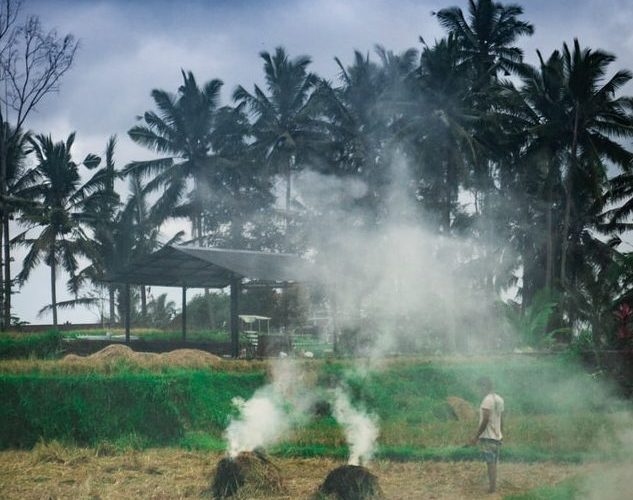
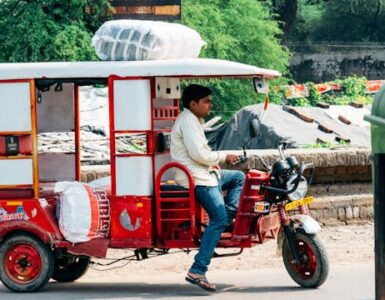
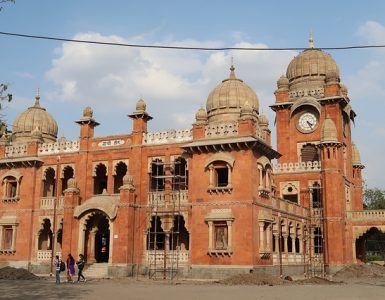
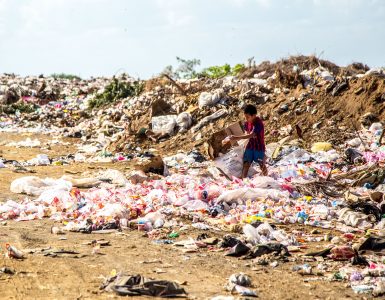

Add comment